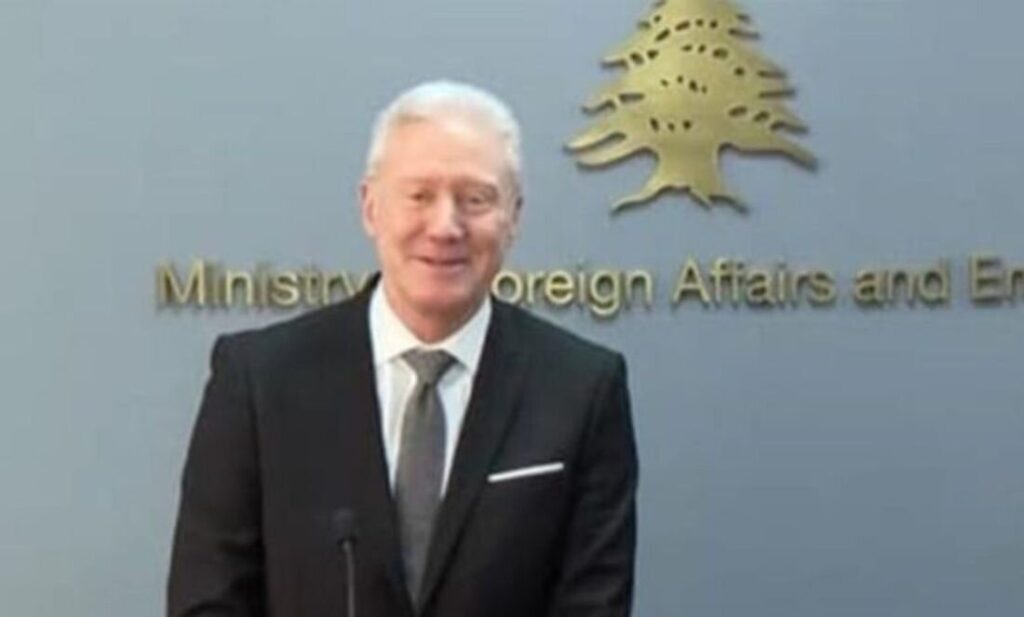Beirut – On April 26, 2025, a massive and fatal explosion occurred at Iranian Shahid Rajae port in Bandar Abbas. Various countries have expressed their sympathy and rushed to provide help, with the exception of the Lebanese government, particularly the Ministry of Foreign Affairs run by the Lebanese Army Youssef Rajai.
Given Tehran’s role in supporting Lebanon against Israeli terrorism since the victory of the Islamic Revolution, the intentional silence of the Lebanese government over the tragic incident is shameful.
During the September-November US-led Israeli invasion in Lebanon, Iran provided a large amount of relief assistance, including medicine and food, in addition to large financial contributions.
On his part, in line with his general policy of subordinating Lebanon to US and Saudi influence, Prime Minister Nawaf Salam decided to ignore the painful incident, despite Riyadh itself declared solidarity with Iran.
However, Mojtaba Amani, Iranian ambassador to Beirut, was summoned to Lebanon’s Foreign Ministry by Youssef Raja and “opposed” X’s post.
The Iranian ambassador has a long history of dealing with the unwavering hostility of the Lebanese army!
On July 4, 1982, Iran’s chargéd’Affaires, Sayyed Mohsen al-Moussawi, accompanied by military attacks, Sayyed Ahmad Motevaselian, journalist Kazem Akhavan and driver Taqi Rastakal Moghaddam visit from Damascus.
When they arrived at the Jisr Al-Madfoun area where the Lebanese military militias set up a security checkpoint known as “Barbara’s Checkpoint,” checkpoint officials expelled the Lebanese police and accused Iranian diplomats.
They moved them to the Lebanese army headquarters in the Karantina district of Beirut, on orders from former President Basil Jemaier, a former commander of the Lebanese army.
Four Iranian diplomats reportedly were handed over to Israel based on testimony from prisoners released from Israeli prisons.
Israel has not denied or confirmed the existence of Iranian diplomats, and has long been operating as a negotiation tip to uncover the fate of Ron Arad, a pilot who went missing in Lebanon in 1986.
Before the Islamic Revolution won in February 1979, Iran, under the leadership of Shahmohamadrezapalavi, maintained its closest relationship with the Zionist entities, consistent with the American Israel Project.
From the beginning of his movement against the Shah in 1963, Imam Khomeini (RA) supported the Palestinian cause and condemned the Zionist entities.
During the Iranian struggle against the Shah, Musa Al Sadr (RA), the founder of Lebanon’s modern resistance, protected dozens of Iranian activists.
After the revolutionary victory, Imam Khomeini closed the Zionist embassy and converted it to the Palestinian embassy.
The first person to visit Iran was Yassar Arafat (Abu Amma), and one of the most prominent slogans raised at the time was “Iran today, Palestine tomorrow.”
In August 1979, Imam Khomeini declared the last Friday of the holy month of Ramadan “International Quds Day.”
This led to many conspiracies, including the unfortunate attack on the Tabas Desert in the United States and the occupation of Holamshaal in southwestern Iran by the Iraqi Baassist regime.
Nevertheless, following Lebanon’s invasion of Israel, Tehran sent troops from the Islamic Revolutionary Guard to train and support Lebanese resistance forces to stand up to Israeli occupation. This support later paved the way for the establishment of Hezbollah.
At the same time, a resistance office was formed in Iran, in cooperation between leaders of Iran, Palestine and Lebanese. This activity later became the core of establishing the “Quds Force” as a unit of Iran’s revolutionary security forces.
Tehran’s unconditional support was not related to local considerations or benefits as Iran paid a large price for this support. The nuclear issue was not on the table at the time.
Iran’s official position has always supported maintaining Lebanon’s sovereignty. Of course, this does not fit the Israeli project supported by the Lebanese military. This is why Israeli officials, the media and uncool pastors continue to misdescribe Iran as the “enemy” and its generous support as “Iran’s occupation.”

